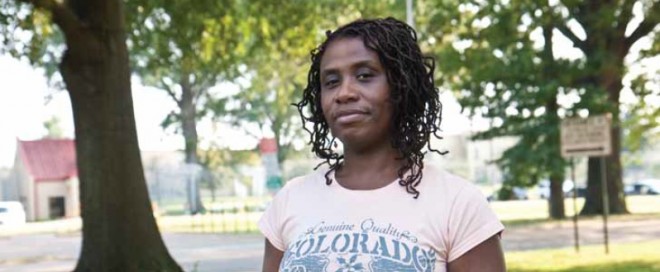
Four years ago, Jacqueline Roebuck Sakho, MA ’09, was working as the faith-based outreach coordinator for the Division of Corrections in Shelby County, which surrounds Memphis, Tennessee. She tried to do things to help families stay in touch with each other, such as get the National Association of Baptist Women to provide cakes for children’s birthday parties with their imprisoned fathers.
But Sakho wasn’t satisfied. She was appalled at the lack of answers for the high recidivism rate for African-American young men. She worried about the tendency for long-imprisoned women to build substitute families, with different women assuming the role of father, mother, and child. “These women were going to have a very difficult time returning to their communities after release,” said Sakho, the mother of six children (including two sets of twins!). And there was obvious inequity in which types of citizens ended up behind bars, with disproportionate representation of African-American young men and women, often incarcerated for relatively minor offenses.
When Sakho saw a flier for a workshop on restorative discipline led by Jean Handley, Sakho went and loved what she heard. At Handley’s suggestion, Sakho enrolled in a restorative justice class at EMU’s 2007 Summer Peacebuilding Institute (SPI).
“I took my first class with Howard Zehr and said, ‘This is it.’” A few months after SPI, Sakho moved to EMU with her 2-year-old twins in tow to start the master’s program in conflict transformation, which typically takes two years or longer to complete.
Responding to Sakho’s enthusiasm, husband Ferdinand lent fabulous support by caring for the other children, then ages 5, 7, and 11 (the older twins) in their home in Memphis. He took their older children to the park, scouts, sports activities, and health-care providers; all of them worked to maintain good grades.
Sakho’s extended family also stood by her. Sakho’s grandparents, parents, and aunt – who live two hours from Harrisonburg in Washington D.C. – helped care for the twin toddlers and backed up Sakho in every way they could. Sakho’s mother-in-law “carried our family and provided financial support” until she died just weeks before Sakho’s graduation in the spring of 2009.
“We [Sakho’s immediate family] have been nurtured by what society thinks is extinct – the black extended family,” she says. “For many Africans and African Americans, it is worth the ultimate sacrifice to have children educated. I’m just extremely fortunate that I come from such rootedness, strength and dedication.” Was CJP truly worth two years of her life and tens of thousands of dollars? “Beyond worth it,” Sakho replies. “I always say I grew up at CJP. I learned about being an empathetic human being.”
For her final master’s degree project, Sakho tried to locate African Americans across the nation who were involved with restorative justice and to solicit their experiences with it.
Her project led to the first gathering of African Americans interested in restorative justice theory and practices. Fourteen of them met in Berkeley Springs, West Virginia, July 31 to Aug. 2, 2009, including Sakho, attorney Fania E. Davis, who is executive director of Restorative Justice for Oakland Youth, and Morris Jenkins, an associate professor in the Department of Criminal Justice at Wright State University in Ohio. Grassroots practitioners also came.
Sakho next wants to explore restorative justice as a tool for addressing the historical trauma of slavery.
